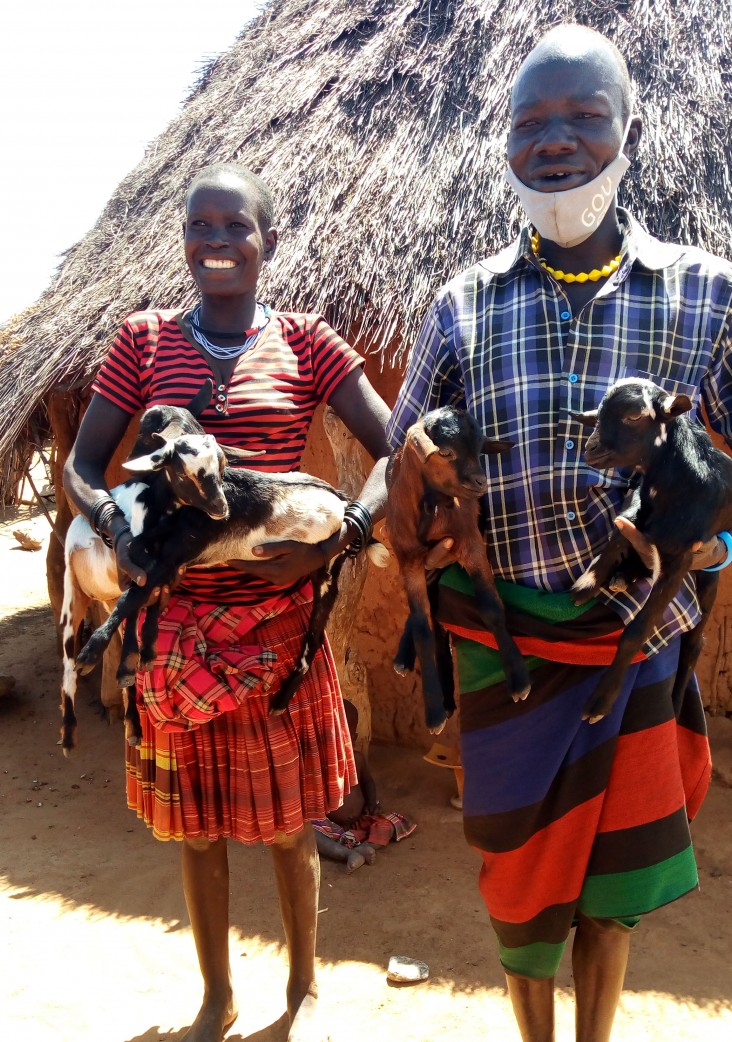Speeches Shim

Aretho Cecilia and Lojo Apakwayo’s home is among over 224 homesteads in Karamoja, in northeastern Uganda, that USAID Integrated Community Agriculture and Nutrition Activity has reached with information on the benefits of harmoniously sharing family resources, such as goats. The USAID activity emphasizes the need for women to share resources as a way to combat gender-based violence. By encouraging elders to influence men to let their wives to keep at least one goat at home so that children can have milk to drink - instead of men owning all resources - the activity has empowered women to help themselves and their families.
Under this “goats for milk” intervention, USAID ICAN-trained Business Service Providers taught women and households basic hygiene practices in handling goat milk, deworming, immunization and feeding when there is not enough pasture. Households also learned how to construct strong goat houses.
At the beginning, most men opposed the idea of women staying home with animals. USAID ICAN collaborated with elders to organize community dialogues where the benefits of women keeping goats were discussed. Slowly, some households got convinced. Because of the knowledge the women received from the Business Service Providers, the goats they kept thrived even more than those that the men took with them to the field. USAID ICAN Village Health Teams moved from home to home encouraging mothers to utilize goat milk to feed children and improve family nutrition.
“My husband and I realized that it is better for a woman to own and manage at least one goat for the wellbeing and health of the family, especially young children. He gave me one goat. I took care of it, and it multiplied. Now I have four female goats,” said Aretho. “There are many other neighboring homesteads with women managing goats. The Business Service Providers have given us knowledge on how to feed and take care of our goats when other animals have left the kraal. The goats women are managing are doing even better than those that move with men during the dry season.”
Lojo learned from the project the importance of involving his wife in making decisions. “My wife now has control over the goats. We realized that goat’s milk makes a child healthy. Just look at our beautiful children. In my group I also learned that I need to make some decisions with my wife. When it comes to food and chickens, she makes the decisions. It is true that couples that make decisions together live in harmony, and the family is healthy and resilient. That is what all of us want,” he said.

Comment
Make a general inquiry or suggest an improvement.